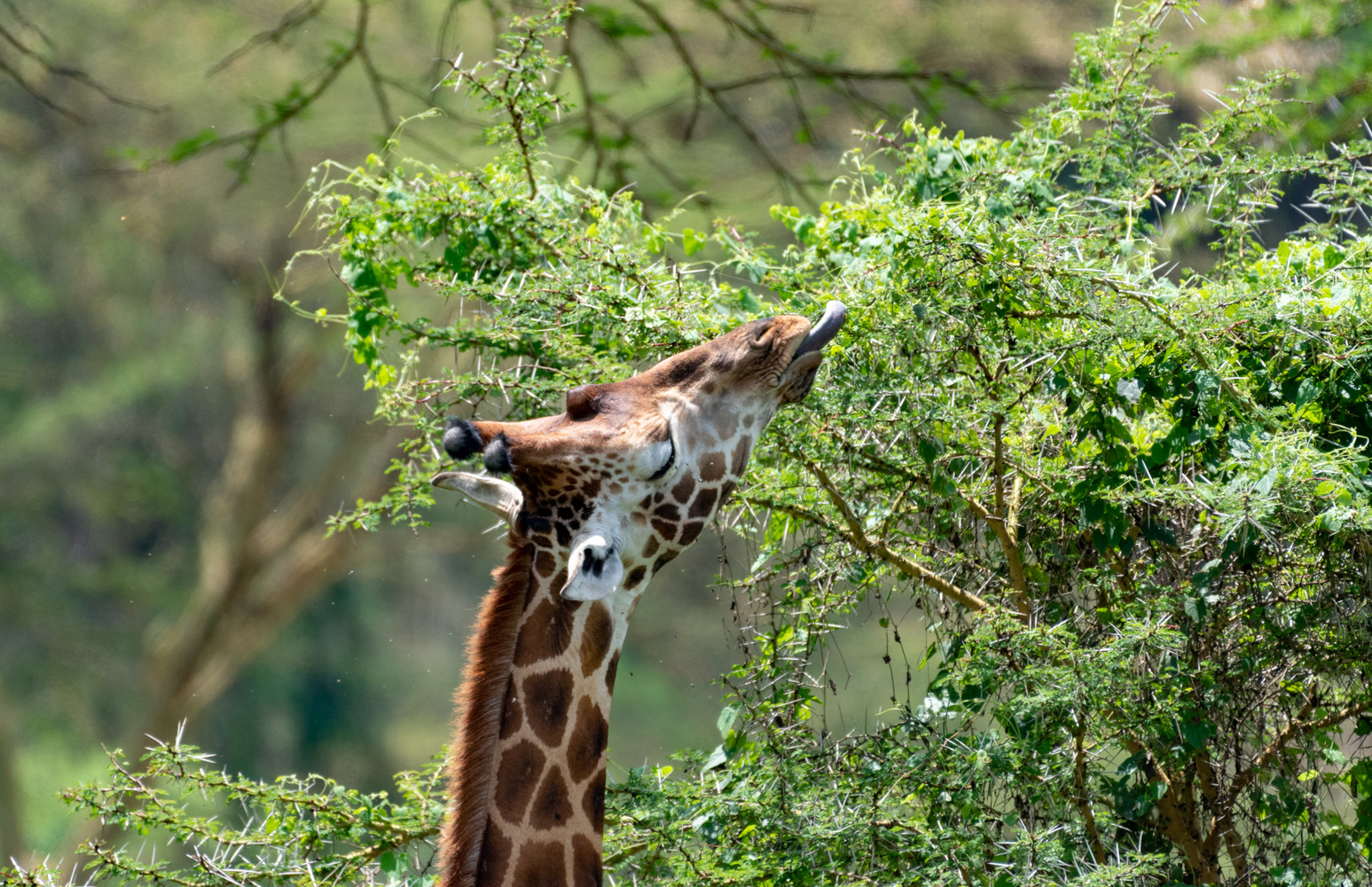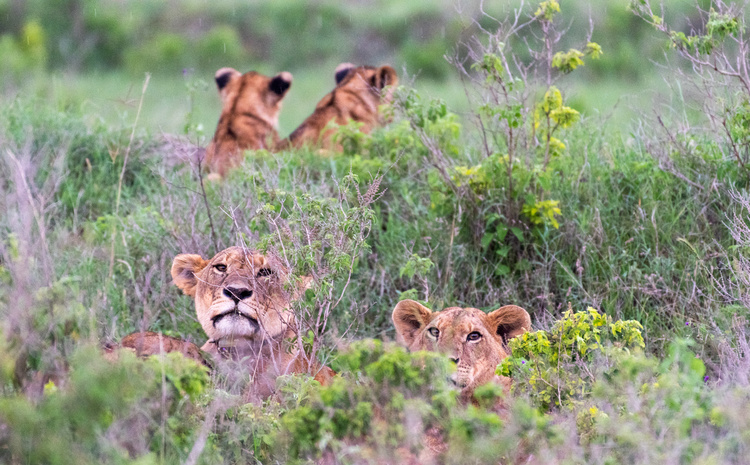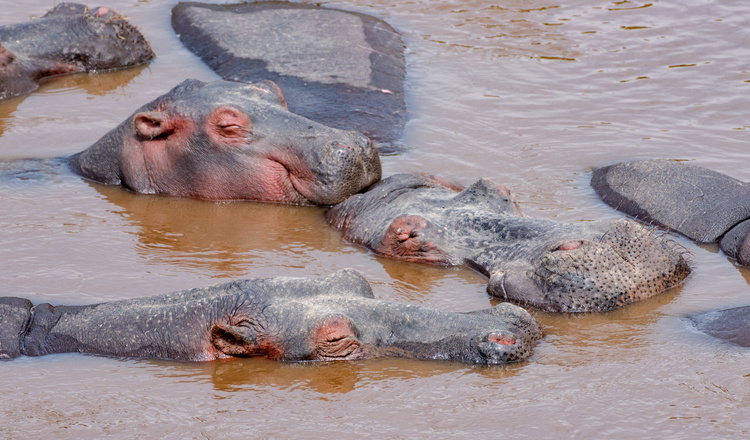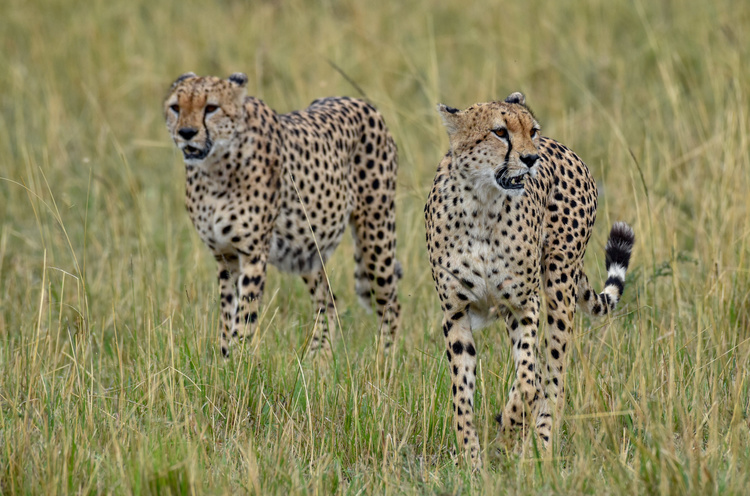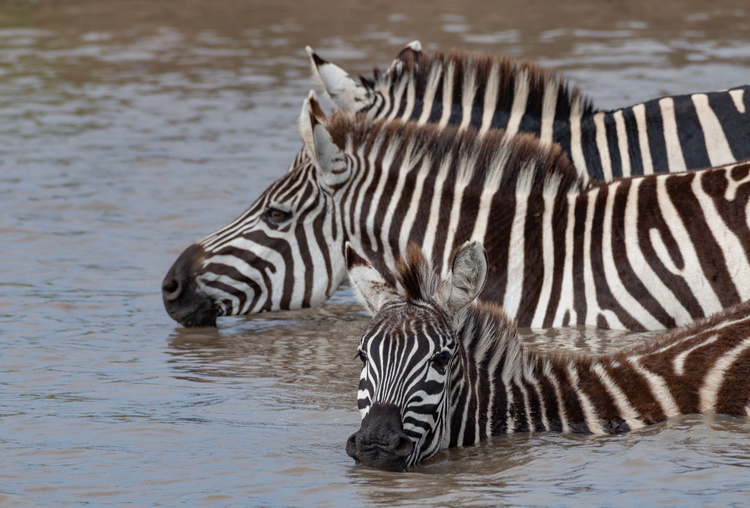Safari, Hiking and Eco-Tourism in Kenya
From US$4,767 per person
Itinerary
-
Day 1Nairobi - Limuru, Tea Growing Vicinity
Depart Nairobi to tea growing country of Limuru, just 20km northwest of Nairobi and check in at Brackenhurst Hotel. A unique facility whereby they have dedicated themselves to the restoration of a vast indigenous forest through eco-conscious initiatives.
This is an action-pack-day and quite exciting, optional activities available and prepaid in advance, including and not limited to:
Mountain Biking
Feel the crisp, fresh air rush against your face as you pedal through pristine tea fields and deep green forests. Bike through early morning mists that linger over rolling hills, leisurely coast down dirt roads, or challenge yourself through a labyrinth of forest trails. Mountain biking at Brackenhurst is an energising experience that will deepen your appreciation for this beautiful part of Kenya.
Horse Riding
There are several farms in the area that offer horse rides through Tigoni's renowned tea fields. Brackenhurst can help arrange horse riding sessions for small groups. Experience the beautiful scenery from the back of a horse!
Bird Watching
The forest restoration efforts have increased the number of bird species at Brackenhurst from 35 to 187 over the past twenty years. They offer birdwatching tours and forest walks so you can observe the results of their conservation work first-hand.
Kiambethu Tea Farm visit
Glimpse into the 'living history' of Kenya's tea industry when you visit Kiambethu Tea Farm. Begin the tour with tea inside a colonial mansion where you can learn about the process of making tea. Next, follow a local historian through an indigenous forest while he explains the important role of plants in traditional Kikuyu culture. To conclude this charming visit, enjoy a three-course meal on a beautiful lawn overlooking the Ngong Hills.
Gatamaiyu Forest
Gatamaiyu Forest is situated about an hour away from Brackenhurst. It is one of the last ancient indigenous forests in Central Kenya. Elephants, leopards, and other rare wildlife still roam the area, and there are several breath-taking waterfalls hidden in the depths of the forest. The hike is about three hours long and is moderately difficult during the rainy season.
Mlango Farm visit
Tour an extensive farm and private art gallery that exhibits the work of Kenyan artists. Harvest your own vegetables and enjoy a fresh, homemade lunch that is suitable for vegetarians and vegans. Mlango Farm usually has an artist in residence and offers workshops in addition to the farm tour. This is a very child-friendly attraction! Visits by appointment only.
Brown's Cheese visit
Brown's Cheese has won international awards for its array of specialty dairy products. Savour an exclusive cheese tasting or participate in a tour of the company's sustainable farm. Walk through a biodynamic vegetable garden, milk a cow, and make mozzarella under the supervision of cheese-making experts. Feast on a three-course meal made from homegrown ingredients, including delicious ice cream. They also offer wine and cheese pairings and spa treatments using plant-based ingredients sourced from the farm.
Festivals
Brackenhurst hosts seasonal festivals each year. Vendors sell artisan products ranging from jewellery to gourmet food. There are fun activities for children and adults alike, such as aerial yoga in the forest or hayrides on tractors. Local musicians create an atmosphere of celebration as people from diverse communities come together to enjoy the beauty of the outdoors.
Brackenology
Brackenology is a newly launched endeavour within Brackenhurst integrating the forest and gardens into guest experiences. These experiences include workshops and trainings, informative points around campus as well as talks, film screenings and other engaging activities. Much of the effort revolves around accessible education including school day trips, internship opportunities, and facilitating university-level research. This all takes place on the Brackenhurst campus in the midst of one of the most biodiverse environments found on the African continent.
Lunch, dinner and overnight at this very exciting place in the tea growing country, surrounded by beauty and nature. -
Day 2Limuru - Mt. Longonot - Lake Elementaita
Early breakfast and depart with packed lunch to Longonot and arrive in good time to start your hike to crater rim of Mt Longonot, rising 1000m above the baking valley floor. The steep climb to the rim takes just an hour (2.5km) while the rewarding jaunt to the summit (2776m) and around the crater takes another three hours (7.5km). All in all the trek is 12.5km and takes about 6 hours. After this exciting hike, continue south to Lake Elementaita, one of the Great Rift Valley lakes, for dinner and overnight at Sentrim Elementaita Lodge
-
Day 3Lake Elementaita - Lake Nakuru
Depart after breakfast, armed with packed lunch and proceed to Lake Nakuru National Park. Embark on a game drive where you will have the opportunity to spot leopards, black and white rhino and the famous pink flamingos as well as a variety of other wildlife found in this park. Back to the lodge for diner and night.
-
Day 4Lake Nakuru - Masai Mara
Depart for Masai Mara. The pleasant road climbs steadily in altitude, and offers beautiful mountain landscapes, folds of the rift valley. Numerous cultivated plots dot the route before descending to Narok and the Masai Mara region.
Covering some 1,510 km² along the border with Tanzania, it is by far the country's best-known and most visited game reserve. A World Heritage Site, the Masai Mara is the Kenyan extension of Tanzania's Serengeti National Park. The reserve's name is derived from the river that flows through it, Mara, and the people who live there, the Masai. It is home to a rich fauna, with 2.5 million herbivorous mammals that delight the reserve's predators. Twice a year, the animals migrate from one reserve to another in search of the best grazing. Wildebeests and zebras gather in their millions during this transhumance. The group can be dozens of kilometers long! Late afternoon game drive followed by dinner and overnight. -
Day 5Masai Mara
A day spend in Masai Mara Game Reserve with early morning and evening game drives. The Mara River means “spotted” river in the Masai language. It reflects the savannah landscape dotted with umbrella acacias, green and russet grasses and silver-leaf croton bushes. Since colonial times, the park has held its reputation as one of the world's finest wildlife observatories. The reserve has a large population of lions, leopards, hyenas and jackals. The savannah is home to some 450 bird species, including ostriches, waders and rare, majestic eagles. Second great day on safari through the Mara, one of Africa's top 5 wildlife reserves. All of Africa's great fauna is represented here, and predators are plentiful.
-
Day 6Masai Mara
This day you explore Masai Mara vicinity on foot and by vehicle, visit a Masai Village, and you will also have an opportunity to participant, as optional, Air Balloon Safari that can be arranged on site but the day before at the latest, at an extra cost.
-
Day 7Masai Mara - Nairobi
After breakfast, you leave the Masai Mara region. Drive through the town of Narok, where the street vendors provide a lively backdrop. Continue on to Nairobi, arriving in the early afternoon and ending our services.
Contact us if you are planning an extension to Mombasa or the Indian Ocean coast.
Prices
Price conditions for your safari in Kenya
Price Per Person
Price Include
- Transport in private 4x4 land cruiser
- Unlimited kilometers
- National parks entry fees
- Services of our professional English-speaking driver guide
- Drinking Water (refer below)
- Hotel accommodation on Full Board basis sharing room (refer below)
Not Included in the Price
- Visa fee
- International flight
- Transfers where not applicable Travel and cancellation/medical insurance cover
- Hotel accommodation in Nairobi
- Single Room or Tent (under single Supplement terms)
- Beverages, Alcohol, Spirits
- Reusable Water Bottle for refilling (Very Important)
- Photographic fee with the local people
- Eventual tips
- Any items or expenses of personal nature
- Any other items not mentioned in the inclusions
Travel info
Here is
some practical information for your safari in Kenya
Accommodation
during your safari in Kenya
Transport in safari
Other
Useful Information to travel in Kenya
- No plastic bags in to Kenya
- No plastic bottles in the Game Parks and Reserves
- Carry your COVID Vaccination Certificate
Entry requirements for Kenya
- Mandatory passport valid 6 months after your return date
- Since January 4, 2024, entry to Kenya has been subjected to an electronic travel authorisation (ETA), in place of a visa.
Sanitary conditions for Kenya
- Yellow fever
- Malaria
- Consult your GP or an International Vaccination Centre to assess your state of health and receive health recommendations, particularly concerning vaccinations
- Set up a personal pharmacy
Climate
What to Pack for your safari in Kenya
- Good quality sandals
- Good quality light walking shoes
- Casual shoes for evenings
- Light boots for your own comfort in the evening
- Fleece jacket
- Practical safari jacket
- T-shirts
- Short and long sleeve shirts or blouses
- Shorts and long casual trousers
- Casual light dresses or skirts
- Enough underwear, socks and hankies
- Bathing suit
- Toiletries, lip balm and scarves
- Miniature wet towel and Kleenex (enough)
- Small backpack
- Small reusable water bottle
- Small flashlight or headlamp (important)
- Hat with 'shin cord' to avoid blowing away and a safari hat or cap (important)
- Important Quality mosquito/insect repellent (for body)
- Waterproof sun blocker cream/sunscreen
- Personal medication
- Good quality sunglasses
- Binocular and Guidebooks
- Camera with extra battery and memory card
- Hiking spirit, Energy and Good sense of Humour

